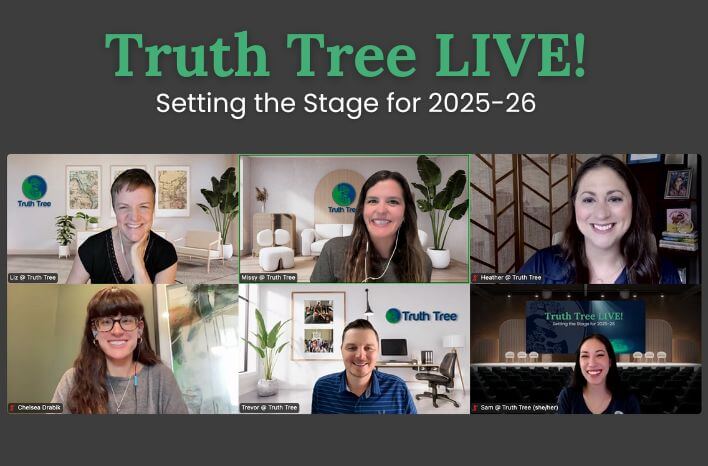It’s hard to believe it’s already been a year since I left the halls of independent school life and began my next chapter in digital marketing for schools.
After nearly 15 years at three very different independent schools in New Jersey, I thought I understood the challenges facing private schools—and especially their marketing and admissions offices. But after meeting dozens of our partner schools this past year, I’ve learned even more. Some lessons confirmed what I suspected as a Mar/Comm director. Others surprised me.
If I could tell school administrators a few things, they’d be these:
Make Time for the Data

No matter my title, I always knew I should’ve spent more time analyzing data—from website traffic and conversions in GA4 to social media engagement and email open rates.
The problem is that Mar/Comm offices (for the schools lucky enough to have one) are pulled into tasks that are more visible and seem more urgent. But your data is where you’ll uncover both what’s holding you back and the opportunities to move forward more strategically.
You need to know:
- The search terms and keywords people use to find you—and your peers.
- How long users spend on each page and which ones convert best.
- Your top traffic sources and how they’ve shifted over the past 1–5 years.
- Whether your most visited pages are optimized to convert.
- The percentage of users taking high-value actions like visiting admissions or tuition pages.
- What’s happening in the market—use Google Trends to track search volume for your key terms.
Data doesn’t just inform. It empowers your next move.
Make Space for School Marketing
Too many schools still don’t have a dedicated marketing professional. I don’t mean a communications person who manages internal comms or advancement support—those roles are important, but they’re not focused on enrollment marketing.
I’ve seen advancement directors launch an annual fund, plan a gala, and manage social media—all while trying to oversee digital ads. I’ve seen admissions directors juggling operations, special projects, and communications. And I’ve worked with incredible founders and executive directors carrying the entire school on their shoulders.
In 2025, when parents expect a concierge-style admissions experience, a dedicated enrollment marketing professional isn’t optional—it’s essential. The schools thriving right now are the ones prioritizing this role year-round.
Marketing Works Best When the Foundations Are Strong
Even the best school marketing strategy can only succeed when it’s supported by a strong foundation. We sometimes see schools invest a few hundred dollars a month in digital ads and expect immediate enrollment results, but families don’t choose a $30,000+ per year school based on a single ad. Private school enrollment is a high-consideration, emotional decision that unfolds over months or even years.
That’s why the quality of a school’s digital presence matters so much. When a parent clicks an ad, they should land on a website that’s easy to navigate, transparent about the school’s value, and guides them clearly to take the next step. If that experience feels confusing or incomplete, it can erode trust before a conversation even begins.
Effective school marketing doesn’t just drive clicks, it builds relationships. And that requires partnership between strategy, storytelling, and a strong digital experience that lives up to the promise your school makes in every ad.
So, Don’t Jump the Shark
Don’t throw money at ads until your foundation is ready (see above). That means clarifying your brand messaging and identity, aligning stakeholders, and building a nurturing strategy that turns awareness into action. Essentially, make sure you’re ready to take the relationship to the next level before investing in ads.
Once those pieces are in place, digital marketing becomes an amplifier—helping you tell your story, attract right-fit families, and guide them confidently through the funnel.
The Audacity of it All
Since leaving my role at an independent school, I’ve become more direct in my communication and more confident in my ideas. I see too many brilliant, dedicated colleagues making the same mistakes I made: not advocating for proper prioritization, accepting under-resourcing, and being treated as non-experts.
Enough is enough.
At Truth Tree, I feel called to advocate for the Admissions, Marketing, and Communications professionals who deserve more. If that’s you, I’m here when you need support.






Heather Burchfield is Truth Tree’s Director of Partner Success focusing her infectious energy on the success of school partners worldwide. Heather hails from a background in journalism before devoting 15 years to independent school admissions and marketing.
Why is data so important for school marketing?
Data reveals what’s working, what’s not, and where to focus your efforts. Metrics like website traffic, search terms, conversion rates, and top-performing pages help you make smarter, faster marketing decisions based on evidence—not assumptions.
What tools should our school use to start tracking data?
Start with Google Analytics 4 (GA4) for website insights, Google Search Console for keyword performance, and Google Trends to monitor search interest in your region. From there, add CRM and email analytics to connect marketing activity to inquiries and enrollments.
What’s the difference between a communications role and a marketing role?
Communications focuses on internal messaging, events, and community updates. Marketing focuses on attracting and converting new families through digital ads, SEO, website optimization, and storytelling designed to grow enrollment.
How can a small school justify hiring a marketing professional?
When it comes to independent and private school enrollment, marketing isn’t a “nice-to-have”. It’s a critical revenue driver. A dedicated marketer helps increase inquiries, improve conversion rates, and build a consistent funnel year-round, ensuring your admissions team has qualified leads.
How do we know if our website is helping or hurting conversions?
Check whether your admissions pages are easy to navigate, your tuition info is transparent, and calls to action are clear. Track how long users stay on your site and which pages lead to inquiries. If parents are leaving quickly, your site likely needs clearer messaging and design.
How much should we expect to spend on digital marketing for it to be effective?
Every market is different, but sustainable results require both a strong strategy and an appropriate budget. Expect to invest in creative, optimization, and ongoing management—not just ad spend. Think of it as long-term enrollment growth, not a quick fix.
What does “right-fit families” mean, and how do we attract them?
Right-fit families share your school’s values and thrive in your environment. To attract them, your messaging should be authentic, specific, and aligned with your mission so families can see themselves in your story.
How can Truth Tree help our school?
We help schools get discovered by their right-fit families by amplifying their story in the digital space. Interested in exploring the finer details? Reach out to our team today.
With fewer families searching, every search counts.
See How We Help Schools Stand Out
